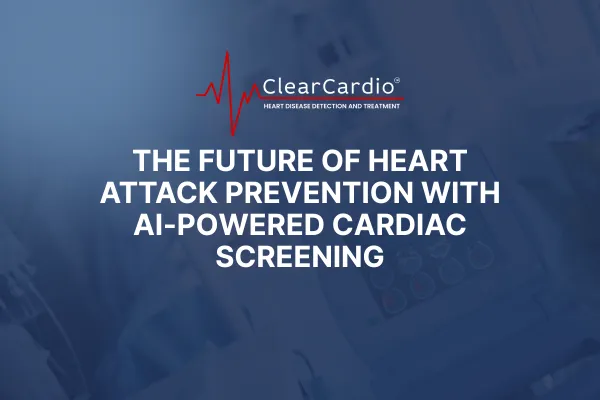
The Future of Heart Attack Prevention with AI-Powered Cardiac Screening
Dr. John Osborne | ClearCardio
In this groundbreaking episode, JD Enright and Dr. John Osborne welcome a special guest physician to explore the revolutionary world of AI-powered cardiac CT screening. Dr. Osborne, a Harvard-trained cardiologist with seven board certifications, shares his unique journey from molecular genetics research to becoming a pioneer in preventive cardiology, revealing why traditional stress tests are failing patients and how ClearCardio's technology is changing everything.
The conversation delivers shocking real-world case studies, including patients with over 1,000 cubic millimeters of plaque who achieved 36% plaque reduction in just one year, and seemingly healthy individuals in their 40s who required emergency bypass surgery despite looking picture-perfect. Dr. Osborne explains how AI can detect over 2,000 shades of gray compared to the human eye's 50, quantifying heart disease down to a tenth of a cubic millimeter and catching disease 20-30 years before symptoms appear.
"AI will see that change long before we can even say it anatomically as far as the degree of narrowing. AI is an early leading indicator. The best news is that if you look at events - ruptured plaques - when you begin to lower cholesterol, the reduction in events begins to occur within days to weeks." — Dr. John Osborne
Key Takeaways from This Episode:
Dr. Osborne trained at Harvard's Brigham and Women's Hospital and spent two years in Harvard's genetics lab identifying genes that cause hypertrophic cardiomyopathy
Traditional stress tests have a 25-40% false negative rate for severe blockages and 25-40% false positive rate, making them dangerously unreliable
Angina (chest pain from blocked arteries) wasn't medically described until 1812 because most people didn't live long enough to develop heart disease
Finland had the world's highest heart disease rates until 30 years ago, then dramatically reduced them through governmental and societal lifestyle changes
Cardiovascular death peaked in the 1960s, declined until 2011, but has been rising again due to the obesity epidemic
Mexico became the world's #1 consumer of Coca Cola per capita, and diabetes is now their leading cause of death
AI can detect over 2,000 shades of gray in cardiac CT images compared to the human eye's ability to see only 50 shades
A seemingly healthy trainer in his 40s with normal lipids required bypass surgery, proving you cannot judge heart disease by appearance
One patient reduced total plaque burden by 36.4% in just one year using ClearCardio's protocols
A 33-year-old Air Force pilot and triathlete needed bypass surgery despite perfect lifestyle, due to genetic factors (familial hypercholesterolemia and LP(a))
Plaque stabilization occurs within days to weeks of starting treatment, while anatomical regression takes months to years
Texas passed the first heart attack prevention law in 2009 requiring insurance coverage for calcium scoring.
Resources Mentioned:
Clearly AI Analysis - ClearCardio's proprietary AI technology for cardiac CT interpretation
Cardiac CT Angiography - Advanced imaging technology for detecting coronary plaque
Colchicine - Anti-inflammatory medication for treating residual cardiovascular inflammation
Texas Heart Attack Prevention Law (2009) - First state law requiring insurance coverage for cardiac screening
Senator Angela Paxton's Bill - Proposed Texas legislation to update cardiac screening coverage to include CT and AI
Texas Medical Association - 56,000 physician organization supporting cardiac CT legislation
American College of Cardiology Texas Chapter - Professional organization backing preventive screening initiatives
